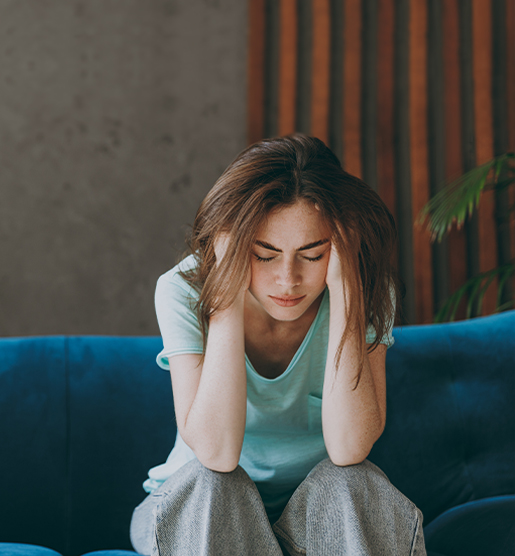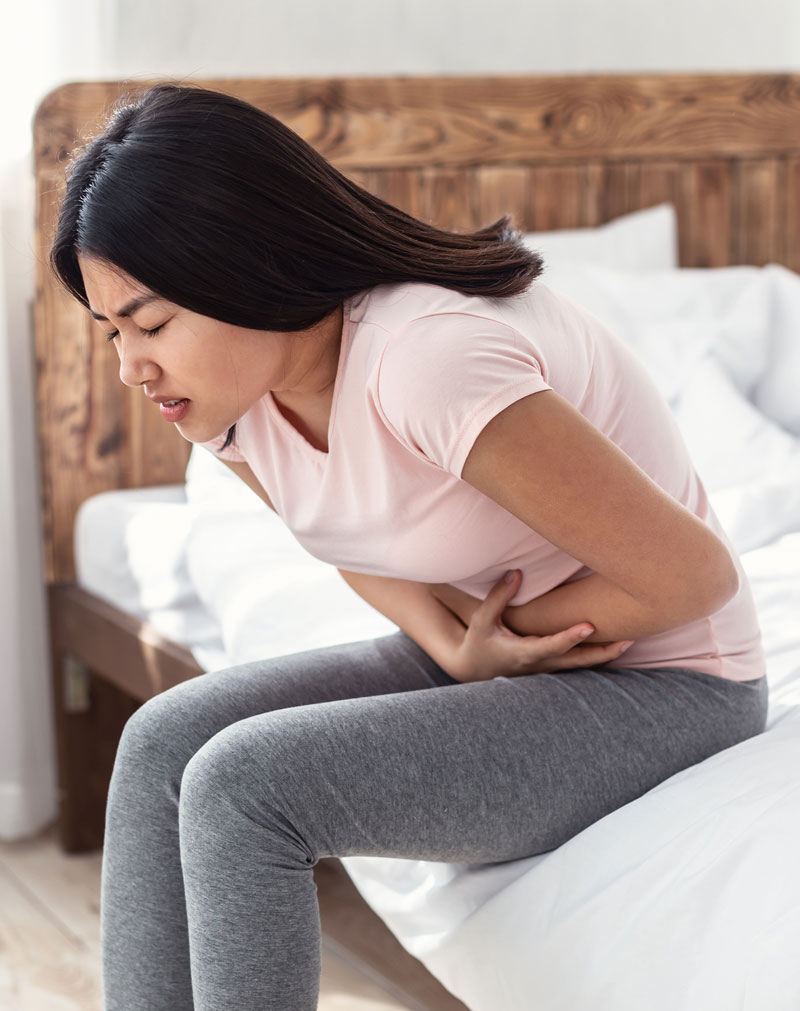Free shipping on all orders over $50 | Subscribe & save 15%
Free shipping on all orders over $50 | Subscribe & save 15%

Interstitial cystitis (IC) is a chronic condition that causes pain and discomfort in the bladder. When symptoms suddenly become worse, this occurrence is known as an IC flare.
While triggers may vary from person to person, this blog will cover a few of the most common causes of flares. These could include stress, certain foods and drinks, hormonal changes, and physical activity. Here are some tips for recognizing triggers and coping with the pain of IC flares.

An IC flare is the sudden onset of worsened IC symptoms. Since the nature of IC is so different for each person, there’s really no way to determine how severe, how long, or which symptoms will be intensified by a flare.
The symptoms of an IC flare could include, but are not limited to:
It’s important to remember that IC symptoms are specific to the person. A flare is the feeling of more intense symptoms than you’re used to and often for a longer period of time.
An IC flare could last a few hours, days, or even a few months. Patients with severe IC may suffer with frequent flares for longer periods at a time. Lifestyle and dietary changes might ease the intensity of flares, but that starts with understanding what triggers them.
Any lifestyle or diet factor could trigger a flare—worrying too much, exercising too much, your period, sex, and, of course, eating spicy or highly acidic foods. If you want to learn which foods to limit or stay away from, check out our blog, 7 Foods to Avoid on an IC Diet.
It’s important to keep track of potential triggers and take steps to avoid them in order to manage IC symptoms and prevent flares. Let’s take a look at a few:
Not much is known about IC, but it’s important to still be able to live your life in spite of your symptoms. If you feel a flare coming on, you’ve got to listen to your body and find out what helps you. Here are some tips for calming a flare:
Start Tracking
As mentioned above, recognizing your triggers will help you greatly. You’ll learn to be mindful of specific foods or drinks that could cause a flare, identify patterns, and improve the quality of your life.
Practice Relaxation Techniques
Stress is a common trigger for IC flares, but luckily, it can be managed. Discover ways to chill out that are fun and stress-free. Try deep breathing, meditation, or yoga.
Eliminating Foods and Drinks
Diet plays a big role in causing flares. Try to cut back on possible triggers, such as caffeine, alcohol, acidic foods, and artificial sweeteners.
Eat the Right Ingredients
Taking supplements can help increase your intake of natural ingredients, such as Quercetin, Turmeric, Aloe Vera, and many others.
Drink Plenty of Water
Staying hydrated can help flush out your bladder and reduce the risk of flares.

Heating Pads or Cold Packs
An oldie, but a goodie. Heating pads applied directly over the painful area can ease discomfort. Likewise, a cold pack might be useful. Find out what feels best for you and go with it.
Consult A Doctor
If you’re having frequent or severe flares, talk to your doctor about treatment options. You’re not in this alone, and you should seek help when you need it. Be patient and persistent, and don’t hesitate to reach out to your doctor or a support group for help and advice.
Remember, everyone’s experience with IC is different, so it may take some trial and error to figure out what triggers your flares and what works best for you.
We promise we won’t spam you! Just a monthly recap of our favorite wellness tips, updates and more.